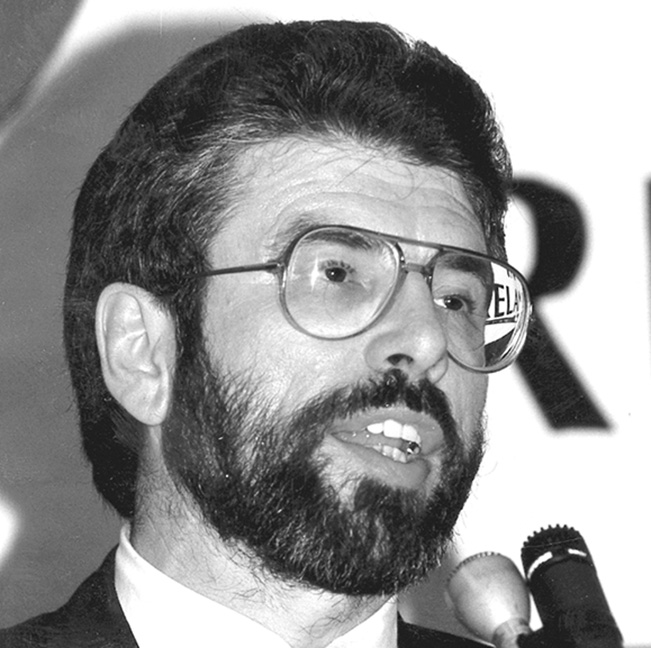Gerry Adams, leader of Sinn Féin, is the most well-known Irish politician outside the island of Ireland. As a civil rights activist in Northern Ireland in the late sixties, a victim of Britain’s oppressive internment policy in the seventies, and a purported I.R.A. member, Adams’ life story reflects the evolution of the “Troubles” in Northern Ireland. The following excerpt is taken from a 1991 interview.
℘℘℘
I want to see a democratic Ireland. I want to see a national democracy restored. I think that’s the essence. I have come round to the view that the key to this whole business is self-government, national self-determination. I think there has to be an economic democracy as well. We have to have a redistribution of whatever wealth the country holds. I don’t think it’s worth one person dying – whether it’s a British soldier or a civilian or a member of the I.R.A. – or even serving one day in jail, for something that doesn’t improve the lot of the third of the people in the country who are living at the poverty level. I just don’t think it’s worth it. It isn’t just about materialism. I think we need to have an equality of opportunity.
I don’t see that it’s my job to act as a sort of proxy spokesperson for the I.R.A. If people want to talk to the I.R.A., let them go talk to the I.R.A. My job is to point out that what we want to see is an end to conditions for conflict – a total demilitarization of the situation. We actually want to see the end of the I.R.A. and the British Army and the U.D.R. and the R.U.C. We want to see a peaceful development.
I’ve been elected by the people of West Belfast, they’ve elected me three times. Refusing to talk to me means that these people are being disenfranchised, that the British are refusing to recognize their rights. We’re an important part of the equation; the people who I represent have the same rights as everyone else. I don’t want to talk to Peter Brooks [then Northern Secretary] for the craic. I’m interested in trying to move the whole thing forward. I think the 1990s should be a period when we get peace and we should have talks.
No matter how much you discuss what’s happening in this conflict, no matter how much you examine all the different characteristics of it and the history of it, the past and the future, it has to be settled and it can only be settled when people start talking.
We’re living in a state of emergency. We have had a national state of emergency since the state was established. There are almost seven hundred republican political prisoners, and I don’t know how many others there are – which means there are thousands of families involved in this conflict and there have been three thousand people killed.
Discrimination is a major issue still ingrained in the system and that’s the backbone to all of this. It isn’t because Protestants hate Catholics, it’s because the system needed to exclude those which it saw as potentially dangerous. And excluded them then by not giving them decent housing, not giving them votes, not giving them employment. – April 1991 ♦


Leave a Reply